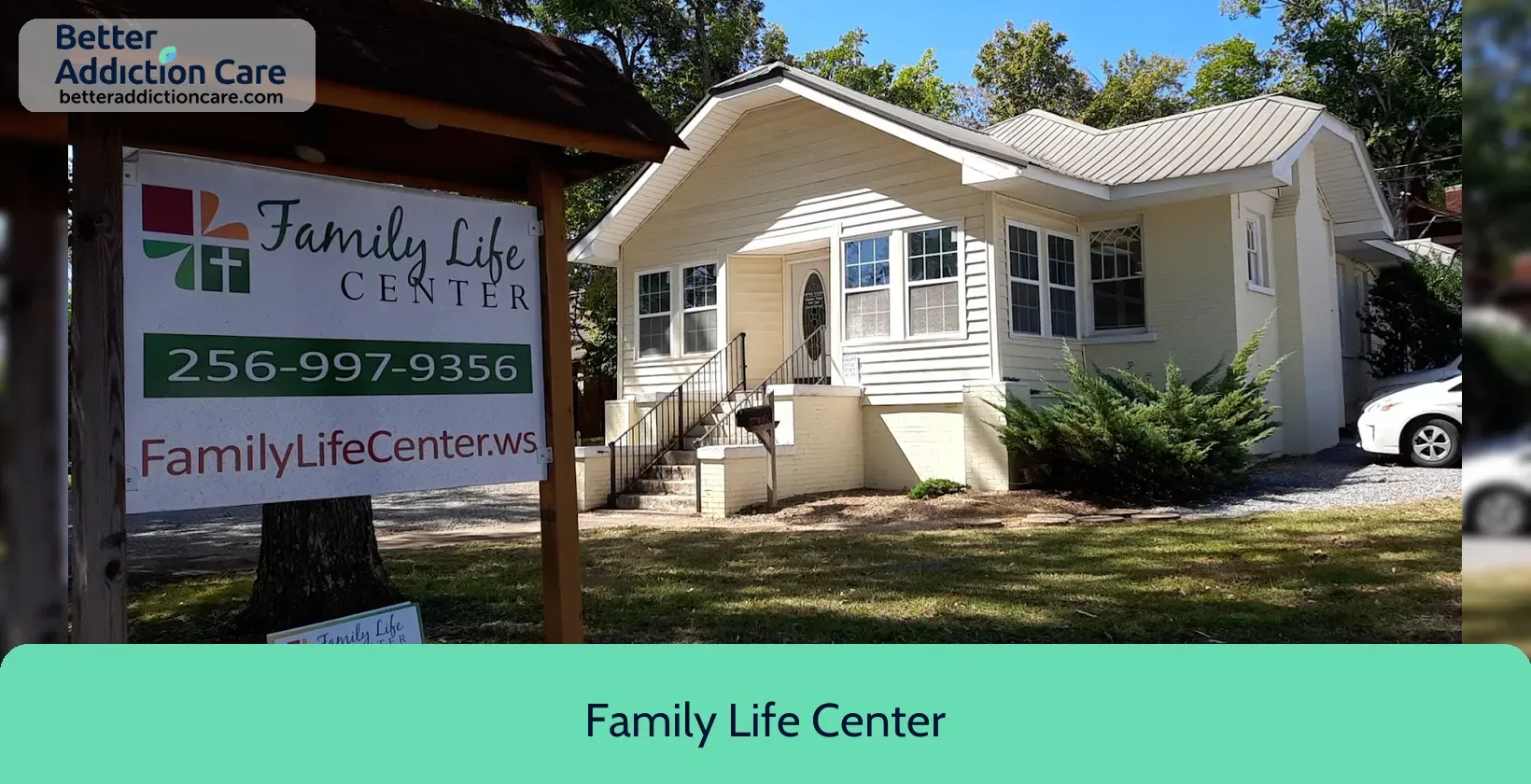The Bridge

Overview
The Bridge is a substance abuse treatment center for people seeking treatment near DeKalb County. As part of their treatment modalities for recovery, The Bridge provides cognitive behavioral therapy, telemedicine/telehealth therapy, and substance use disorder counseling during treatment. The Bridge is located in Fort Payne, Alabama, accepting medicaid for treatment.
The Bridge at a Glance
Payment Options
- Medicaid
- Federal, or any government funding for substance use treatment programs
- Payment assistance (check with facility for details)
- SAMHSA funding/block grants
- Cash or self-payment
Assessments
- Screening for tobacco use
- Comprehensive substance use assessment
- Interim services for clients
- Outreach to persons in the community
- Screening for substance use
Age Groups
- Young adults
- Adults
- Seniors
Ancillary Services
- Case management service
- Suicide prevention services
- Early intervention for HIV
- Social skills development
Highlights About The Bridge
7.00/10
With an overall rating of 7.00/10, this facility has following balanced range of services. Alcohol Rehabilitation: 8.00/10, Drug Rehab and Detox: 6.00/10, Insurance and Payments: 6.53/10, Treatment Options: 7.46/10.-
Alcohol Rehabilitation 8.00
-
Treatment Options 7.46
-
Insurance and Payments 6.53
-
Drug Rehab and Detox 6.00
Accreditations
State mental health department:
State mental health department accreditation refers to the process of evaluating and certifying the quality and standards of a state's mental health department, ensuring that it provides high-quality services and meets specific criteria for mental health care. The accreditation process is performed by a third-party organization and helps to improve the overall care and treatment of individuals with mental health conditions.
Treatment At The Bridge
Treatment Conditions
- Alcoholism
- Substance use treatment
Care Levels
- Outpatient
- Regular outpatient treatment
- Aftercare
Treatment Modalities
- Cognitive behavioral therapy
- Telemedicine/telehealth therapy
- Substance use disorder counseling
- Trauma-related counseling
- Smoking/vaping/tobacco cessation counseling
Ancillary Services
Languages
- Sign language services for the deaf and hard of hearing
Additional Services
- Pharmacotherapies administered during treatment
- Housing services
- Drug or alcohol urine screening
Special Programs
- Clients with co-occurring mental and substance use disorders
- Criminal justice (other than DUI/DWI)/Forensic clients
- Clients who have experienced trauma
Get Help Now
Common Questions About The Bridge
Contact Information
Other Facilities in Fort Payne

7.18

7.03
Browse rehab centers near Fort Payne and in other cities across Alabama
DISCLAIMER: The facility name, logo and brand are the property and registered trademarks of Family Life Center, and are being used for identification and informational purposes only. Use of these names, logos and brands shall not imply endorsement. BetterAddictionCare.com is not affiliated with or sponsored by Family Life Center.
